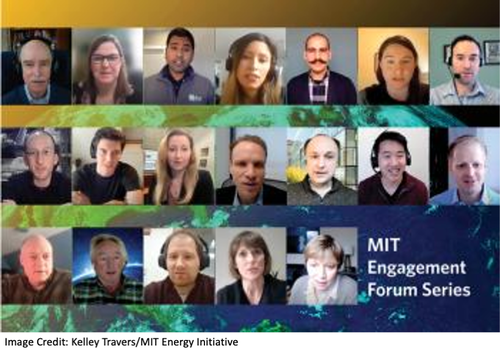Collaboration in Climate Action

MIT is committed to driving the transition to a low-carbon world, throwing the full weight of its research forces into transformative technologies for reducing greenhouse gas emissions. But “MIT can’t solve climate change alone,” said Maria T. Zuber, MIT's vice president for research and the E. A. Griswold Professor of Geophysics, speaking at a virtual symposium in late March.
When MIT initiated its first Climate Action Plan in 2015, a key tenet, said Zuber, was “engagement with actors and entities outside of MIT.” As the Institute prepares to issue an updated version of the plan later this spring, this engagement forum, “Research collaborations to decarbonize the energy system,” was conceived as an opportunity for the MIT community to learn about and comment upon some of the low-carbon research projects between MIT and key outside collaborators. It was co-hosted by the Office of the Vice President for Research and the MIT Energy Initiative (MITEI).
“With vignettes of current or recent engagement activities, we seek to share a small handful of examples of how working with industry has catalyzed progress in the electric power sector, life-cycle analysis to inform decarbonization efforts, and fusion energy, to name a few,” said MITEI Director Robert C. Armstrong, the Chevron Professor of Chemical Engineering, in his introductory remarks. Symposium speakers, who included MIT faculty and scientists, industry liaisons, and venture capital leaders, made clear that joining forces yields concrete benefits — not simply in specific technologies or sectors, but in the kind of large-scale, market-based solutions required to meet the climate crisis.
By symposium’s end, participants had reached consensus: To achieve the urgent goals of the climate fight, whether by catalyzing new energy industries or deploying cost-effective, carbon-reducing applications, industry and academia must work cooperatively. “We truly need to step up our game — we simply don’t yet have all the technologies we need to decarbonize our energy systems and our economy,” said Zuber. “You’ve heard the phrase, ‘Go big, or go home.’ When it comes to climate change, going big is imperative, because Earth is our home.”
For more, please click here.

